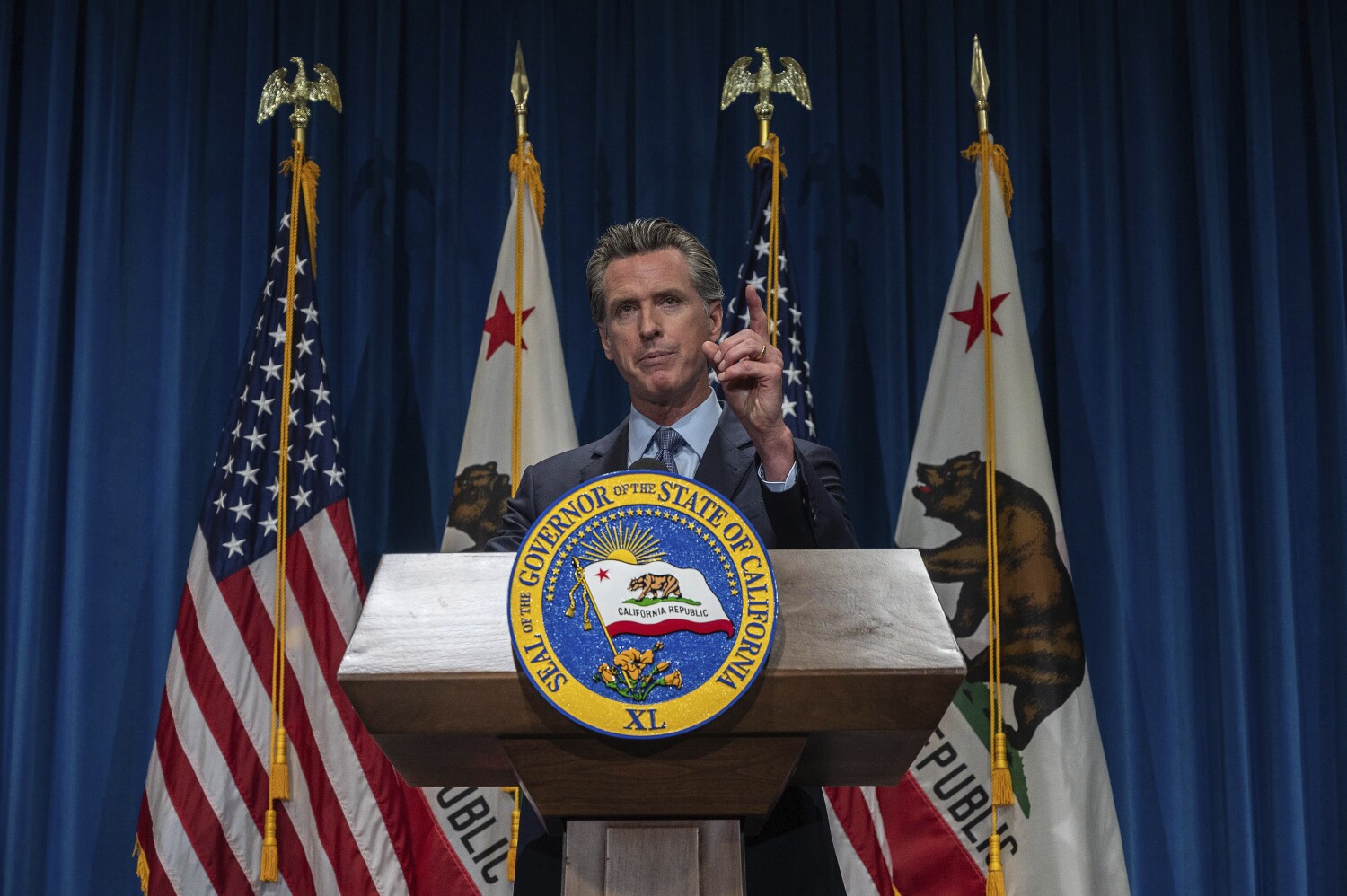[ad_1]

California government operations would still rely on $12 billion drawn from cash reserves and borrowing under the budget proposed by Gov. Gavin Newsom, an independent analyst’s report said Monday, even as the state now expects to collect three times that amount from a windfall of tax revenues.
Newsom’s decision to stick with the borrowing proposals is “shortsighted and inadvisable,” said a report from the Legislative Analyst’s Office.
The new review of the spending plan the governor sent to the Legislature last week largely agrees with Newsom’s estimate of a massive tax windfall to be collected in the current fiscal year and the one that begins on July 1. The analysis suggests, however, that the governor’s proclamation of a $75.7-billion tax revenue “surplus” is misleading because it counts dollars that, by law, must be spent on public schools, used to pay off debt or placed in the state’s main reserve account.
Once those obligations are subtracted, the report notes, the extra cash that lawmakers have discretion to use is $38 billion between now and the early summer of 2022.
But the analysis is most critical of Newsom’s support for leaving a portion of last year’s difficult budget-balancing solutions in place, especially with the state likely to receive one of the largest windfalls of tax revenues in its history.
The budget signed into law last summer, then estimated to total $202 billion, was written with the assumption of a steep and severe drop in tax revenues due to the COVID-19 pandemic. As such, it relied on withdrawals from California’s large “rainy day” fund and proposed a variety of borrowing from internal funds to weather the storm. The emergency measures included a shift in public employee pension costs and paying for some long-term capital projects with bonds instead of cash.
While some of last year’s budget solutions would be scrapped under Newsom’s new spending plan, the analysis notes $12.1 billion of those decisions would stay in place — none bigger than a planned withdrawal of $7.8 billion in cash reserves.
“Despite a historic surge in revenues, the governor continues to make use of nearly $12 billion in budget tools reserve withdrawals and borrowing — to increase spending,” the analyst’s report says. “The state will need these tools to respond to future challenges when federal assistance may not be as significant.”
H.D. Palmer, a spokesman for the governor’s budget office, said the spending plan seeks to address both immediate and longer-term needs and that it envisions setting aside more than $24 billion in budget reserves for future downturns.
“We believe the May Revision strikes a proper balance, and we’ll work with the Legislature in the coming weeks to further discuss how best to balance these imperatives,” Palmer said in an email.
Lawmakers begin their early review of Newsom’s plan this week. By law, they must send a budget proposal to the governor by June 15 or forfeit a portion of their salaries until the work is complete.
[ad_2]
Source link